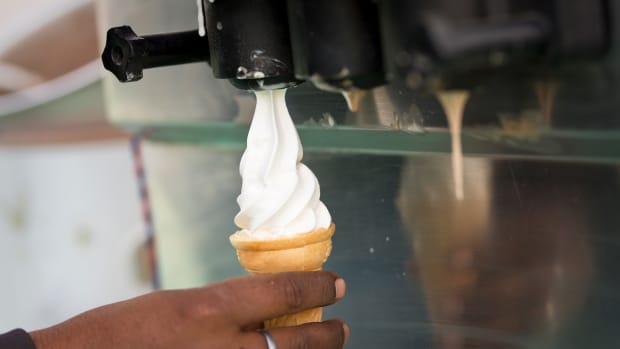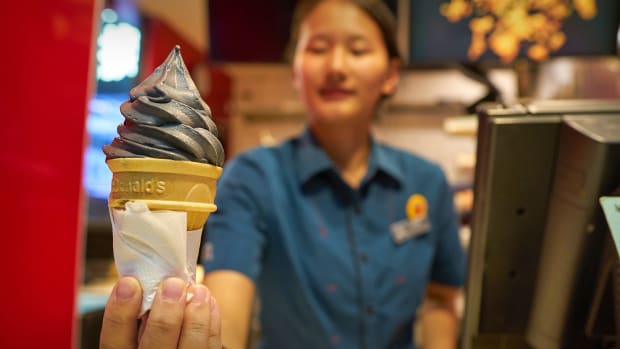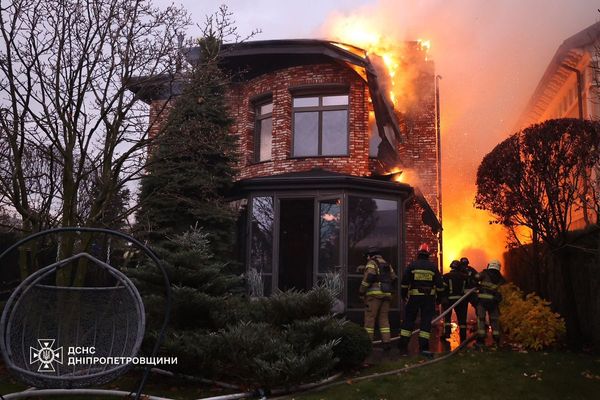The fast food ice cream cone is the perfect expression of dessert simplicity.
That delightful, perfectly-formed swirl of dairy so cold you can see the crystals. That cake cone that tastes like absolutely nothing, but you somehow crave it anyway.
It's craveable enough, in fact, that it really sets people off when they can't get their hands on it at their drive-thru of choice.
Take McDonald's, for instance, which is so notorious for its broken ice cream machines and the wrath they inspire that they've been in the news for years, spawning a boatload of memes in the process.
A 24-year-old software programmer even created a website called McBroken, solely dedicated to whether a location's machine is functional or not.
Now McDonald's is being sued over the whole situation. But there's a much, much deeper story behind that, so a grab a seat and your popcorn.

Getty Images
Why is McDonald's Being Sued?
Before we get to that, let's do a quick dive on the tumultuous history here.
A small business called Kytch that previously created fully automated soft serve machines saw potential in the McDonald's ice cream issue. In 2019, it launched a device of the same name that franchise owners could simply attach to their existing ice cream machines.
The device allowed them access to troubleshoot the notoriously delicate and troublesome machines, providing a solution that Taylor, the machine's manufacturer, couldn't even seem to fix.
Considering that franchise owners were the ones paying for Taylor's failed repair services time after time, the Kytch provided a much-needed respite for their out-of-pocket expenses.
McDonald's, naturally, took notice of Kytch and its "right to repair" sensibilities.
It responded by sending out a company-wide email in November 2020 instructing its franchises to remove any Kytch devices they'd purchased, claiming they posed a safety risk and that use of them would void the machine's warranty.
The email also promised a forthcoming Taylor device that would provide similar features as Kytch (although it would not allow a franchisee to fix their own machines).
This led to Kytch filing its first lawsuit against Taylor, in which itclaimed that it "uncovered a repair racket whereby Taylor designed flawed code that caused the machines to malfunction ... Taylor's web of partners profited millions in repair fees for the malfunctions it manufactured."
On Tuesday, Kytch filed its second lawsuit, this time against McDonalds itself.

Shutterstock
What Does the Lawsuit Say?
Kytch's lawsuit's is a deep dive into you'll need a good bit of time (and brain power) to fully read. But there are a few key pieces that you need to know to grasp the full gravity of it.
The big one, of course, alleges that McDonald's and Taylor actively worked together to steal Kytch's ideas and develop their own solution for fixing the machines.
It also claims the two companies worked with franchise owner Tyler Gamble to access a Kytch device directly in order to use said data for its own endeavors.
Beyond that, it alleges that the two companies were part of a "lucrative scheme" to make sure the ice cream machines broke often, meaning franchise owners would continually be in need of Taylor's services — and it was also the only repair company allowed to service the machines.
Kytch's lawsuit has plenty more dirt on Taylor's fussy machines, too, and none of it is good.
One section reveals that they "have a manual switch allowing users to bypass mandatory pasteurization and brush cleanings. A significant portion of the machines in the Kytch Trial operated with this bypass in violation of public health agency and food safety regulations."
Naturally, McDonald's call for its franchises to pull the Kytch devices resulted in what the lawsuit called "dire financial consequences" for the small business.
"Customers contacted Kytch in the days following the ads and canceled their subscriptions because of McDonald’s false assertions," it reads.
"... Kytch had been barreling towards a $50 million valuation in 2020 as it quickly expanded to fast-food restaurants throughout the country and its valuation in the following year was projected to be exponentially more," it reads.
"That all changed after the false ads, and Kytch was soon unable to court investors to help fund its exponential growth trajectory."
Kytch cofounders Melissa Nelson and Jeremy O'Sullivan are seeking $900 million in damages. TheStreet has reached out to them for comment.







